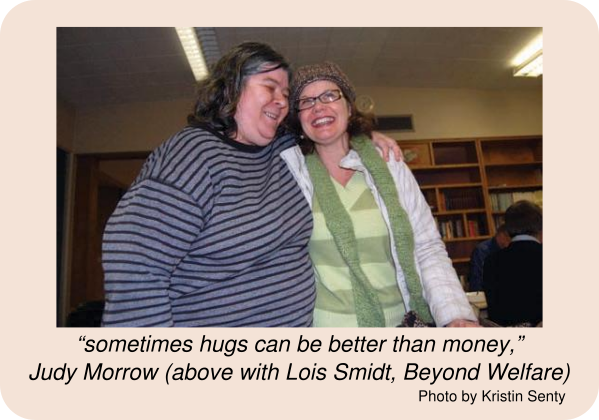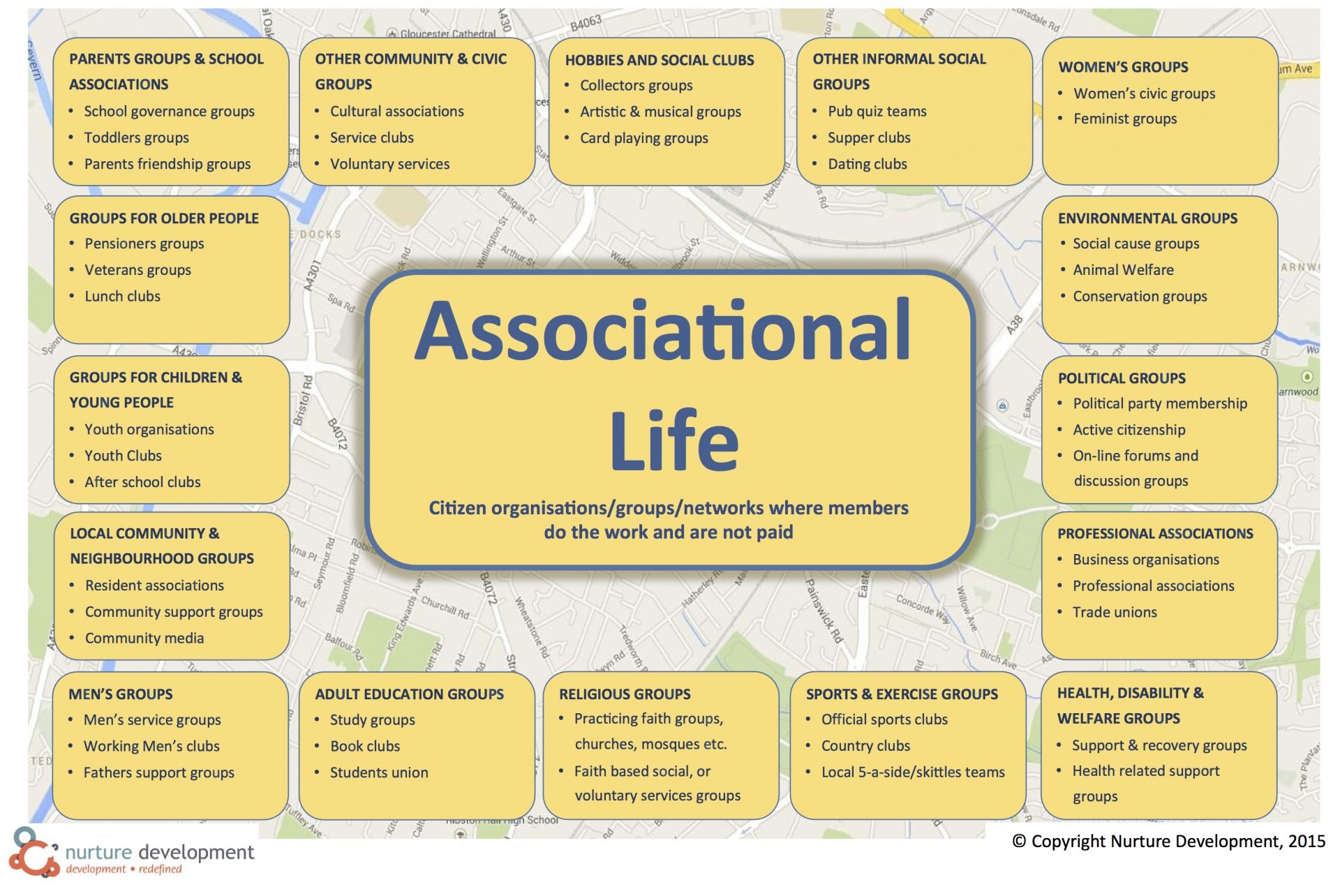
Touchstone Four: Engaging Local Groups and Associations
Steve runs a militaria shop in Cheltenham. But what few people know is that he also informally provides space for retired servicemen to connect with each other. Rob runs a poker night on Friday’s in Limerick, Ireland, where he intentionally invites some of his neighbours who are living alone; some of whom are estranged from their families, while others forget to buy food, yet others seldom wash themselves. They play cards together along with other male friends of Rob’s, who work, run their own businesses and care for their families. The rules are the same for everyone: shower and shave before you come and before the game begins everyone calls someone in their family or friendship network they haven’t spoken to during the week.
In a basement of a Presbyterian Church, friends gather for a meal. Some are on welfare, some are not. All are friends. They eat together, but they also have a ritual, which starts with an expression of “what’s been new and good this week”, and “want’s and offers”. It is not at all surprising that when it comes to getting a job it’s not what you know, it isn’t even who you know. It’s who you know, who knows who you need to know. These meals are a powerful and enjoyable way to thicken social networks and narrow the gap between individuals living on low income and purposeful and satisfying job opportunities. They also disrupt many of the labels that people affix to folks living on welfare. Read about it in: Finding new ways to get Beyond Welfare by The Diarist Project.
Each of the above three examples chart an alternative path towards social welfare and care. In contrast to many of the traditional approaches that tend towards institutional or programme based responses, they opt for associational solutions. Associational relationships are intentionally driven by the citizen muscle and the heartfelt care of near neighbours, in preference to salaried strangers. Not because one is superior to the other, but because each has a unique and irreplaceable set of functions. Associations are typically focused on informal (non-hierarchical), mutual and consensual solutions, while institutions tend towards producing goods, services and programmes to an acceptable and predictable standard.
While institutions produce services, people produce care. Since care is the freely given gift of the heart, no institution can manage, commodify or curricularise authentic care. Those that claim otherwise are in the counterfeit business. If people produce care then associations amplify and multiply that capacity. In the same way that a choir can produce a song, that an individual, no matter how gifted, cannot; communities can co-create social welfare in a way that an individual or an institution cannot. Zizi Charida a resident of Southbank understands this distinction, she also understands the powerful role that culture can play in helping associations come together across seemingly intractable difference to find a way to make their shared place more joyful and productive. Here’s her community story told in her own words:
FOOD, FEASTINGS & FESTIVALS – COMMUNITY BUILDING IN SOUTHBANK SYDNEY, AUS
by Zizi Charida, CEO of Community Minds
Community Minds holds events that celebrate and share cultural diversity, mainly through food and ‘feastings’. We look at creative, out of the box ways to create opportunities for citizens to gain a more authentic experience of different cultures, but also allowing an exchange of information, so that sharing and learning takes place.
Cultural Facilitators
We engage citizens in the community (via networks, conversations and “getting word out”) to get them on board to share their culture, which puts them in the place of facilitator and leader (leading the way to understanding). We often pay the facilitators for their time, which may be for cooking, food demonstrations, storytelling etc. We brief facilitators and we mentor them if they need support or advice regarding their performance or involvement.
Language is not a barrier – we get a volunteer interpreter to get on board to eliminate that barrier. For example, during Family Feastings where the food demonstrators are talking about the food prepared etc. to community members attending the event, a family member or volunteer will help interpret if the demonstrator does not speak English well, or at all for that matter.
We never just “feed” people… stories and sharing of other cultural gems are always interwoven throughout events. It’s done in almost a natural flowing way, as often the food is connected to stories of communities from that culture. Food no doubt is a delicious medium to start the conversations, the questions, the stories etc.
Food & Cultural Festivals
Community Minds views art, literature and food (from diverse cultures) as cultural assets that enrich us, therefore we set up interactive stalls and stations that provide interactive experiences (utilising/enticing as many senses as possible) that allow people a richer cultural experience.
We don’t have elevated stages for cultural performances, rather cultural art expressions are performed at the same level as the festival participants, creating a different dynamic and unique experience as opposed to the common staged folkloric or ‘culturaltainment’ performances we are accustomed to.
Therefore, Culture is for Enrichment and Education – not just Entertainment, allowing for a genuine experience that feeds into building cultural harmony and solidarity among diverse groups in our community. Cultural diversity is embraced and not ‘exotified’.
Culture is Not Exclusive
We view culture as accessible, therefore we promote cultural rituals/festivities etc. to different cultures, providing a platform for others to access and learn about other cultures/faiths.
Conclusion
In every community, there are formal and informal associations. By association I mean the plural of citizen, so as a flock is to a bird, an association is to a citizen. Here is a topology of associational life:
 Imagine the transformative relational power that could be generated if we learnt how to build an association of associations in every neighbourhood. This is the yet to be realised potential of deep democracy. And it is our greatest hope for a better future.
Imagine the transformative relational power that could be generated if we learnt how to build an association of associations in every neighbourhood. This is the yet to be realised potential of deep democracy. And it is our greatest hope for a better future.
Cormac Russell
Click here for the complete series: The Eight Touchstones of Community Building
